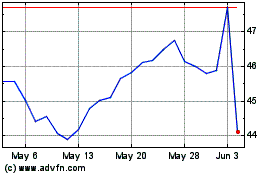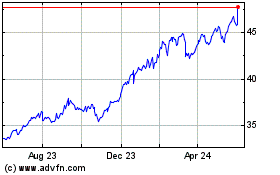India ETFs appear to be back on track after a year of sluggish
growth when its performance fell behind other emerging market
counterparts. Several government reforms and strong corporate
earnings boosted the price of Indian equities which eventually
resulted in the ETFs tracking the region to post strong gains
(India ETFs: Getting Back On Track?).
The Indian economy is largely dependent on foreign capital
inflow for growth and the government’s recent decision to allow
foreign direct investment in Indian retail led to a strengthening
of the economy.
Beyond this, the RBI, or the Reserve Bank of India, also played
its part in infusing more liquidity in the economy through interest
rate cuts. The bank has recently embarked on another rate cutting
campaign, slashing the rate for the first time in a while (A Trio
of Top Emerging Market ETFs for 2013).
The RBI slashed the policy repo rate by 25 basis points (bps) to
7.75% and also reduced the cash reserve ratio (CRR), the portion of
deposits banks need to maintain with the central bank, by 25 bps to
4.00%. This will result in an infusion of further 180 billion
rupees into the banking system.
The attempt by the bank is viewed as a measure to reinvigorate
growth in an economy that is seeing the slowest growth rate in a
decade. However, the bank also emphasized on the fact that further
reduction in interest rates is unlikely attributable to high levels
of fiscal and external deficits and inflation.
The central bank had last made a reduction of 50 bps in Apr
2012. Since then the central bank refused to make any cut in
interest rates despite the government’s continuous appeal in the
light of the high level of inflation.
This marks the second attempt by RBI to cut the CRR since the
third quarter of fiscal year 2012. Bad loans in Indian banks have
risen to a high level. In fact, the economy has recorded the
highest level of ratio of bad debt at banks in the last five years
(Does Your Portfolio Need An India ETF?).
Meanwhile the inflation rate was brought to a three-year low of
7.18% in December and the central bank expects inflation to remain
range bound around this level while heading into the 2013/2014
fiscal year starting April.
However, a fall in the expectation of GDP growth rate
disappointed the market as the RBI reduced its GDP growth forecast
for Asia's third-largest economy to 5.5% for the current fiscal
year, from 5.8% previously.
Indian banks make a healthy portion of ETFs tracking the economy
and the infusion of more liquidity in Indian banks should
positively impact the performance of these ETFs (Can India ETFs
Continue Their Solid Run?).
In fact with the RBI’s announcement on rate cut, Indian
ETFs jumped higher on Tuesday’s trading session. Below we are
highlighting three ETFs tracking the Indian economy in which
financials play a substantial role and which could see a continued
boost should the current trends continue:
iShares S&P India Nifty 50 ETF
(INDY)
Launched in November 2009, INDY is a Zacks top ranked ETF
tracking Indian securities (Zacks Top Ranked India ETF in Focus:
INDY). The product has amassed a net asset base of $419.6 million
and trades at a volume level of more than 300,000 shares a day.
Banks are the first preference of the fund among sector
allocation and make up a substantial portion of the basket with a
share of 12.15%. Other than banks, only computers software gets a
double-digit allocation in the fund with a share of 12.75%. Among
others, the fund does not invest more than 8.54%.
The fund’s asset base is spread across 51 Indian securities and
does little to reduce company specific risk as more than 55% of the
asset base go towards the top ten.
ITC Limited (8.54%), Reliance Industries Limited (7.72%)
and ICICI Bank Limited (7.19%) are the three top elements in the
basket, with a combined share of 23.45%. The ETF is extremely
pricey with an expense ratio of 92 basis points a year.
WisdomTree India Earnings Fund (EPI)
EPI is another Zacks top ranked ETF and manages an asset base of
$1,298.9 million. It is also the most liquid ETF among the three
trading at volume levels of more than 2.6 million shares a day
(Zacks Top Ranked India ETF: EPI).
The fund offers a broader play in Indian equities as it holds a
portfolio of 146 securities. The fund appears to be moderately
diversified in the top 10 stocks where it has invested 42.18% of
its assets.
From a sector perspective, the ETF relies heavily on its top
sectors. Financials, energy, information technology, materials and
industrials are the sectors with double-digit exposure. Healthcare,
consumer staples and telecommunication services are sectors with
least allocation, leaving a skew towards traditional sectors.
Among individual holdings, Reliance Industries, Oil and Natural
Gas Corporation and Infosys form the top line of the fund and
together account for almost 21.8% of the allocation. The fund
charges an expense ratio of 83 basis points on an annual basis.
PowerShares India Portfolio (PIN)
PowerShares’ PIN tracks the Indus India Index, providing
exposure to 50 Indian securities. The fund has built an asset base
of $402.6 million since its inception and trades at a volume level
of more than half a million shares a day.
These 50 securities are mainly from energy, financials and
information technology sectors in which the fund assigns more than
60% of the asset base in total. Among individual holdings, Infosys
(10.96%), Reliance Industries (10.13%) and Oil & Natural Gas
Corp (8.57%) occupy the top line of the fund.
The fund appears to be a bit reasonable than INDY, charging a
fee of 78 basis points from investors. It has returned 13.5% to
investors on an annual basis.
Want the latest recommendations from Zacks Investment Research?
Today, you can download 7 Best Stocks for the Next 30
Days. Click to get this free report >>
WISDMTR-IN EARN (EPI): ETF Research Reports
ISHARS-SP INDIA (INDY): ETF Research Reports
PWRSH-INDIA POR (PIN): ETF Research Reports
To read this article on Zacks.com click here.
Zacks Investment Research
Want the latest recommendations from Zacks Investment Research?
Today, you can download 7 Best Stocks for the Next 30 Days. Click
to get this free report
WisdomTree India Earnings (AMEX:EPI)
Historical Stock Chart
From Feb 2025 to Mar 2025

WisdomTree India Earnings (AMEX:EPI)
Historical Stock Chart
From Mar 2024 to Mar 2025
